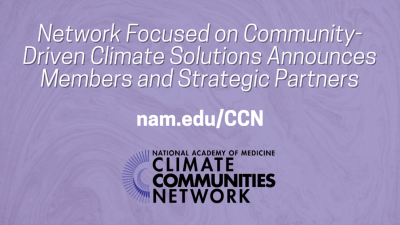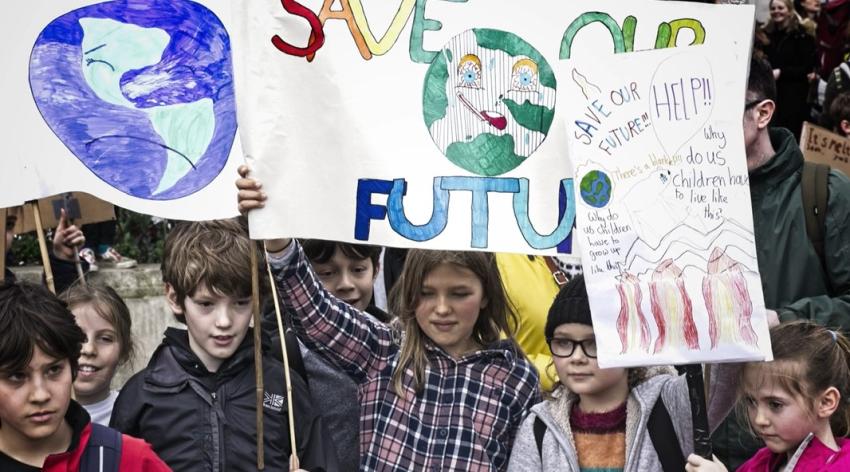Environmental Justice
Health equity cannot be achieved by medical care alone. Social and political factors greatly impact the health of communities, including the environments where they live, work, and play.

Many communities shoulder the undue burden of environmental injustices — pollution, natural disasters, infectious diseases, violence, and more. Effective interventions must be developed through diverse multisector partnerships and be reflected in policies and structures that can create real change.
Our Approach
As part of the our commitment to engage diverse perspectives and sectors, the AAMC Center for Health Justice convened the Multisector Partner Group, a team of leaders from in and outside health care and academic medicine, and identified environmental justice as one of the most pressing health equity issues facing people across the U.S. — and the newest focus area of the center. The center and Multisector Partner Group developed a working definition of environmental justice to guide the center’s program and research activity:
Communities made marginalized — particularly communities of color, Indigenous communities, people with disabilities, and low-income communities — are more likely to be exposed to and harmed by environmental hazards. These hazards can be chemical (e.g., pesticides, toxic waste, lead in paint), physical (e.g., floods, noise pollution, drought, injuries), biological (e.g., molds, allergies, epidemics) or psychosocial (e.g., stress, violence).1
This unjust exposure to environmental hazards gets in the way of the health and the long-term well-being of individuals and families living in these communities across both rural and urban settings — in every U.S. region, state, and local jurisdiction.
Environmental justice “embraces the principle that all people and communities have a right to equal protection and equal enforcement of environmental laws and regulations”2 and demands the meaningful involvement of all people in the development, implementation and enforcement of such laws and regulations. Environmental justice also requires “changing unjust structural conditions deeply ingrained in our built environment and social and economic systems.3”
In 2023 and beyond, the Center for Health Justice will launch programs, conduct research, and develop expertise to serve the health equity community working to address environmental injustice. Subscribe to the Center for Health Justice newsletter to receive updates on this and other initiatives and resources.

Community Voices for Action: Harnessing the Power of Environmental Justice Storytelling
Introducing five organizations from across the U.S. working with the AAMC Center for Health Justice to share their environmental justice stories.
Climate Change, Health Equity, and the Power of Community-Driven Partnerships
The National Academy of Medicine Climate Communities Network (of which the Center is a part) has featured the Center's work in a new story about the role of community engagement in environmental justice. Check it out!

Center for Health Justice Submits Environmental Justice Comments to the White House and NIH
Two comment letters shaped by AAMC CHARGE members' expertise recommend strategies for advancing environmental justice on the federal level.

The Center for Health Justice Joins NAM Climate Communities Network As A Strategic Partner
The network will be a platform for communities disproportionately impacted by climate change to co-design solutions to climate-related health inequities.

Meet Our Environmental Justice Fellow Anthony Nicome, MHS
Anthony is the inaugural health justice fellow with the AAMC Center for Health Justice, focusing on environmental justice. Prior to coming to the AAMC, Anthony served the public as an environmental justice coordinator at the United States Environmental Protection Agency (EPA) where he worked with communities to help protect public health and the environment.
Footnotes:
1 United States Environmental Protection Agency. Environmental Justice. Sept 2022. https://www.epa.gov/environmentaljustice.
2 Bullard R. About Environmental Justice. 2018. https://drrobertbullard.com.
3American Public Health Association. Addressing Environmental Justice to Achieve Health Equity. Nov 2019. https://uat.apha.org/policies-and-advocacy/public-health-policy-statements/policy- database/2020/01/14/addressing-environmental-justice-to-achieve-health-equity.


